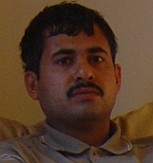I like reading detective fiction and watching detective films, however bad they are. The thrilling sensation of adventure and problem-solving - it somehow immediately pulls me into the story and keeps me engaged in. Sherlock Holmes stories, of course, have been my favorites in detective genre. Among Indian works, I like stories of Byomkesh Bakshi and Feluda, even though these stories are many a time indigestible, with several unbelievable coincidences helping the detectives to solve the mystery. Still, they have a special charm of Indianness which makes them likeable. In Malayalam, I haven't read many detective stories or novels; I think the most interesting one I have read is the good old
Viruthan Shanku, which is regarded as one of the earliest detective fiction works in Malayalam. But then, even in historical fiction works like
Dharmaraja, there are elements of intrigue and suspense.
My most favorite detective films in Malayalam are Mohan's
Mukham (1990), Padmarajan's
Kariyilakkattu Pole (1986), Pavithran's
Utharam (1989) and Shaji Kailas's
The Truth (1998). In
Mukham, Mohanlal plays the role of a police officer looking for a serial killer who murders three women in the city and is after the fourth one.
Kariyilakkattu Pole has Mohanlal again, as a police officer, investigating the murder of a celebrity (played by Mammootty) and has few brilliant questioning sessions featuring Lal and the three suspects.
Utharam is not exactly a detective film. It has a journalist (played by Mammootty) trying to find the reason behind his close friend's wife's suicide, which leads him to findings that are totally unexpected.
Utharam was based on a script by MT Vasudevan Nair, and probably it is his only work in the detective genre.
The Truth is loosely structured compared to the above three films. Its presentation is too commercialized and its story is filled with too many incidents that it doesn't have enough scope for character development; But still, it is one of my favorites because it has few interesting twists and turns and is technically brilliant.
I vaguely remember an old black & white film called
Lottery Ticket (1970) which I had watched long time back in Doordarshan. It was about a missing lottery ticket, and Adoor Bhasi starred in it. In addition to the old-age charm,
Lottery Ticket was also a well-made film, especially if we consider the time it was made.
KG George's
Yavanika (1982) was a landmark film in the history of Malayalam cinema.
Yavanika also shows us the story of an investigation, but it is much more than a detective film.
One more film that would probably come in my list is GS Vijayan's
Charithram (1989), which was inspired from the Tamil film
Puthiya Paravai (1964) starring Shivaji Ganeshan (I am not sure whether that one was based on an original story, or whether that was also a remake).
Charithram was not exactly a detective film, but it has elements of suspense and was presented nicely. The main character (played Mammootty) of the film is having a haunting past, which reappears in front of him when his younger brother (played by Rehman), who is supposedly dead, comes back alive.
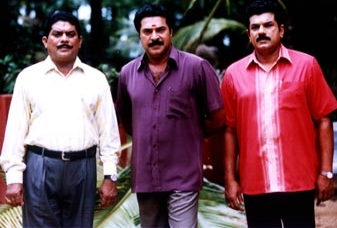 Jagathi, Mammootty and Mukesh in Nerariyan CBI (image from nowrunning dot com)
Jagathi, Mammootty and Mukesh in Nerariyan CBI (image from nowrunning dot com)The most popular detective films in Malayalam would be the CBI series films from SN Swamy- K Madhu - Mammootty team. I have watched all the four films in the series (
Oru CBI Diary Kurippu (1988),
Jagratha (1989),
Sethuramiyer CBI (2004) and
Nerariyan CBI (2005)). I had liked the first two films immensely when I watched them some 10+ years back.
Oru CBI Diary Kurippu was a trend-setter when it was released and I guess it was the first full-length investigative thriller in Malayalam, giving no importance to romance, songs, or anything else. A nostalgia had developed in me for the CBI films, which probably biased my views and I liked the third and fourth films in the series when they were made after a gap of 15 years.
However, when I watched
Oru CBI Diary Kurippu two days back, I was surprised to see how primitive the investigation scenes are in this film. Near the climax of this film, the criminal's blood group is known and he just has to be identified from a list of four or five suspects. Instead of doing this in the most obvious and simplest manner, the CBI officer goes through a round-about way: He is so sure that the criminal might have tested his blood sample at a free malaria camp organized by the
panchayat! So, he goes through the
panchayat records and find the culprit, it seems!
Jagratha is neater, and I think it is the best one in the CBI series. It has a bit more of Sukumaran's portrayal of the arrogant, corrupt police officer - complete with his inimitable mannerisms and dialogue delivery - which we miss in the later films in the series.
In spite of all shortcomings, the nostalgia effect is still strong, and the CBI films would be still among my favorites.

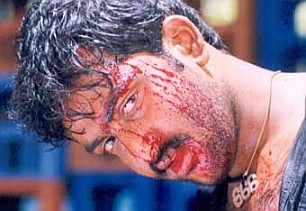
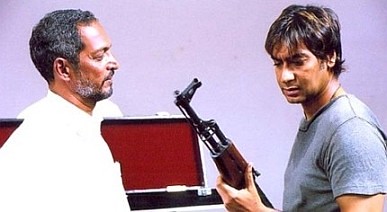

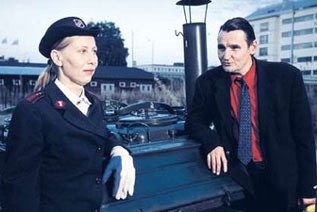

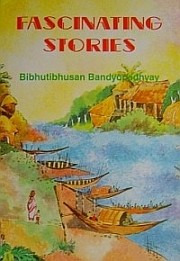 I read the book Fascinating Stories, a collection of 17 short stories by Bibhutibhushan Bandyopadhyay, translated from Bengali by Ashoka Dev Choudhuri and published by Sahitya Akademi. The translator has written and talked about Bibhutibhushan widely, and this representative collection tries to "..bring to life the face of Bengal as it was at the beginning of the 20th century".
I read the book Fascinating Stories, a collection of 17 short stories by Bibhutibhushan Bandyopadhyay, translated from Bengali by Ashoka Dev Choudhuri and published by Sahitya Akademi. The translator has written and talked about Bibhutibhushan widely, and this representative collection tries to "..bring to life the face of Bengal as it was at the beginning of the 20th century".
